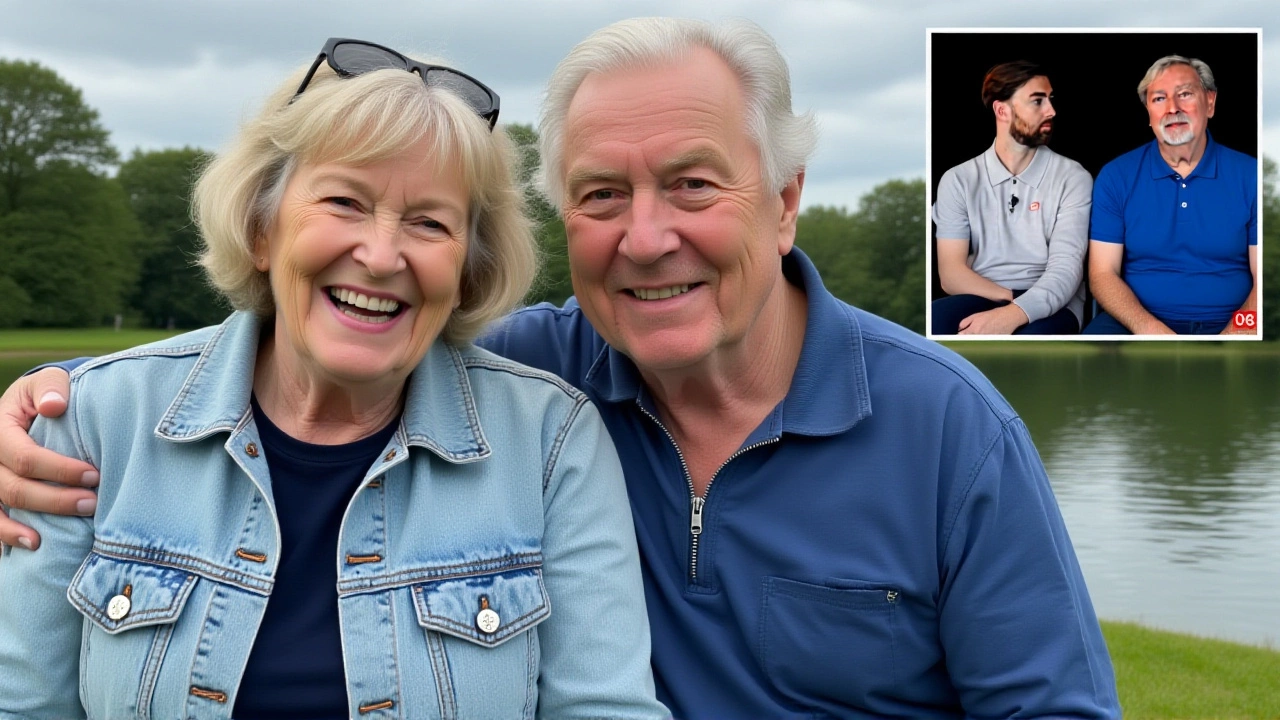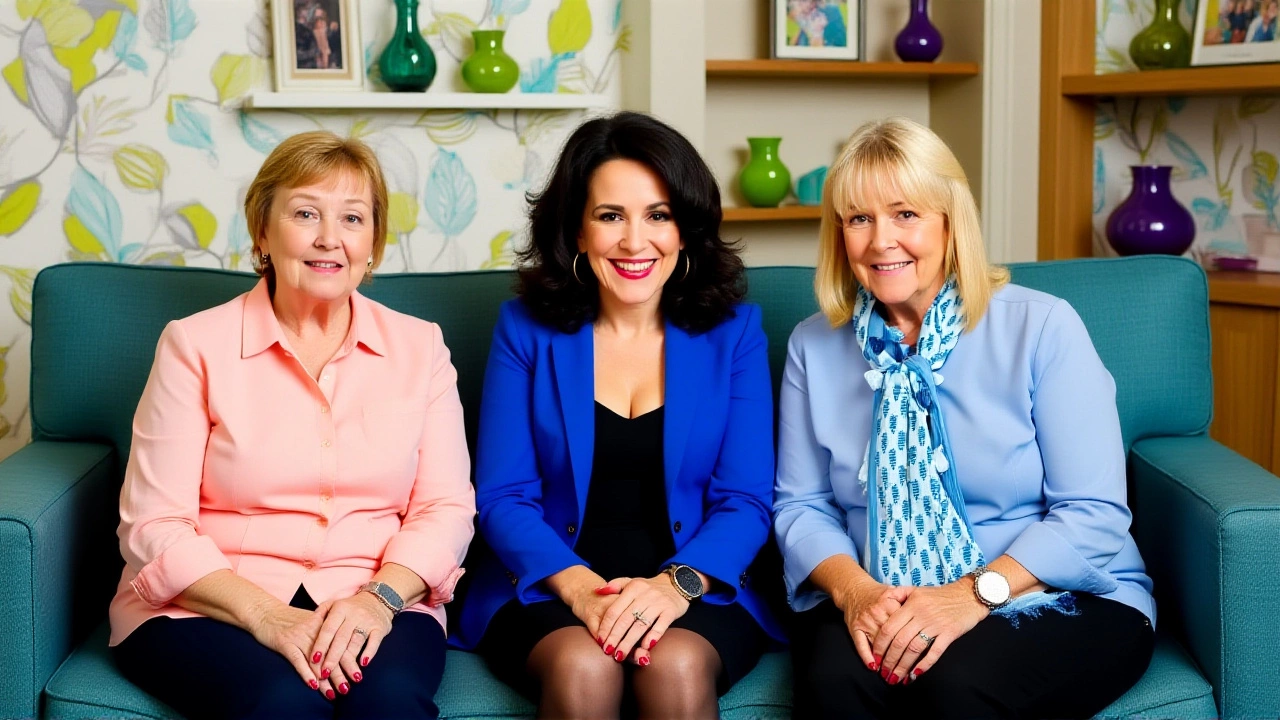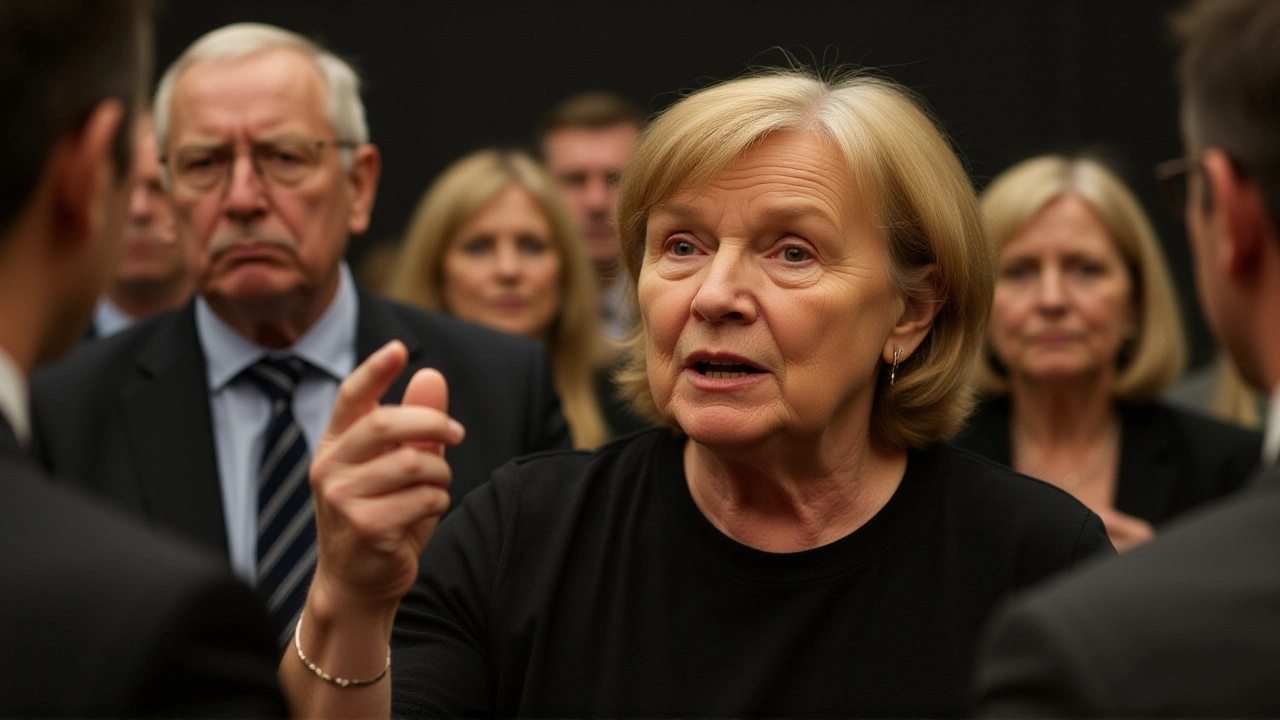When Pauline Quirke, the beloved British actress best known for playing Sharon Theodopolopodous in the iconic sitcom Birds of a Feather, announced she was stepping away from public life, the shock wasn’t just that she was retiring — it was how young she was. At 65, Quirke was diagnosed with dementia in 2021, a revelation made public on January 21, 2025, by her husband of 29 years, Steve Sheen, in a joint statement with Alzheimer's Research UK. The news landed like a quiet thunderclap: a woman still in her prime, known for her sharp wit and boundless energy, now facing a condition most associate with elderly relatives.
From the Spotlight to the Home
Quirke, born July 8, 1959, built a career not just on screen but through education. She founded the Pauline Quirke Academy of Performing Arts (PQA) in the early 2000s, a network now operating in over 150 locations across the United Kingdom. For decades, she trained young performers — many of whom went on to stage and screen success — with the same warmth and discipline she brought to her TV roles. But after her diagnosis, the pace slowed. By 2025, she’d already withdrawn from managing the academy, stepping out of public appearances, and ending all commercial endorsements. "Pauline just wants to spend time with her family, children and grandchildren," Sheen said, his words carrying the weight of a man who’s watched his wife fade from the stage he once shared.
It’s not just personal loss — it’s cultural. Quirke’s MBE, awarded in Queen Elizabeth II’s final Birthday Honours list in June 2022, recognized her contributions to the arts and youth development. Her absence leaves a void in a sector already struggling to retain mentors. "She wasn’t just a teacher," said one former student, now a West End performer. "She remembered every kid’s name, every audition, every bad hair day. That’s not something you replace."
Why This Diagnosis Matters
Most people diagnosed with dementia are over 65 — many in their 80s. Quirke is not. Her case shines a spotlight on early-onset dementia, which affects roughly 42,000 people in the UK under the age of 65, or about 5% of all dementia cases. "She’s young to be diagnosed," noted one panelist on ITV’s Loose Women on January 21, 2025, during the show’s 27th series. "It’s terrifying to think this could happen to someone so active, so vibrant."
The Alzheimer's Research UK emphasized that without intervention, one in two people will be directly affected by dementia — either through personal diagnosis, caregiving, or both. Hilary Evans-Newton, the charity’s Chief Executive, praised the family’s decision to go public: "This isn’t just about Pauline. It’s about shattering the myth that dementia only happens to the very old."

A Family’s Courage
Sheen didn’t make the announcement lightly. The couple, who live in the UK, chose January 21, 2025, to release the news — not during a fundraising drive, not for publicity, but because they felt it was the right time. "We kindly request privacy and understanding," Sheen said. That humility is rare. Too often, families wait years before speaking out, paralyzed by stigma. Quirke and Sheen turned their pain into purpose.
They’ve pledged to work alongside Alzheimer’s Research UK to raise awareness and funds. The charity, which aims to find a cure by transforming how dementia is diagnosed and treated, confirmed the announcement was made at the family’s discretion — not as part of a campaign, but as a personal act of advocacy.

What Comes Next?
The Pauline Quirke Academy will continue, but under new leadership. Quirke’s name remains on the door, but her presence — her laughter, her critiques, her hugs after a bad performance — is gone. Her colleagues say the academy’s spirit is still alive, but it’s quieter now. "We’re not replacing her," said one principal. "We’re honoring her."
For now, Quirke is at home. Surrounded by family. No scripts. No rehearsals. No cameras. Just the quiet rhythm of daily life — the kind most of us take for granted until it’s all we have left.
Frequently Asked Questions
What type of dementia does Pauline Quirke have?
The specific type of dementia Pauline Quirke has has not been disclosed publicly. While Alzheimer’s disease is the most common form, other possibilities include vascular dementia, frontotemporal dementia, or Lewy body dementia — all of which can occur in younger individuals. Without official confirmation, experts caution against assumptions, though early-onset cases often involve genetic or lifestyle factors.
How common is dementia in people under 65?
Approximately 42,000 people in the UK under the age of 65 live with dementia, making up about 5% of all cases. Though rare compared to late-onset forms, early-onset dementia can strike as early as the 30s or 40s. Symptoms often go misdiagnosed as stress or depression, delaying proper care. Quirke’s public disclosure helps normalize conversations around younger patients.
Why did the family wait until 2025 to go public?
The diagnosis was made in 2021, and the family spent several years adjusting privately. They chose January 2025 to go public not for media attention, but to align with their readiness to advocate. Alzheimer’s Research UK confirmed the timing was entirely the family’s decision — a rare example of control over a narrative often dictated by public pressure.
How will the Pauline Quirke Academy continue without her?
The academy’s day-to-day operations are now managed by a team of long-standing principals and staff who trained under Quirke. While she no longer participates in management, her teaching philosophy remains embedded in the curriculum. Students still receive letters from her in care packages — handwritten notes she prepared before stepping back. The institution is not closing; it’s evolving.
What can people do to support dementia awareness?
Alzheimer’s Research UK encourages donations, participation in fundraising walks, and volunteering with local dementia support groups. More importantly, they urge people to learn the early signs — memory lapses that disrupt daily life, confusion with time or place, and changes in mood or personality. Early detection improves quality of life. Sharing stories like Pauline’s helps reduce stigma and drives policy change.
Is there a link between acting and dementia risk?
There’s no scientific evidence linking acting to increased dementia risk. However, some studies suggest that creative professions — which demand memory, emotional recall, and social engagement — may delay symptom onset by building cognitive reserve. Quirke’s lifelong involvement in performance may have helped mask early signs, making her diagnosis even more surprising to those who knew her.

Write a comment